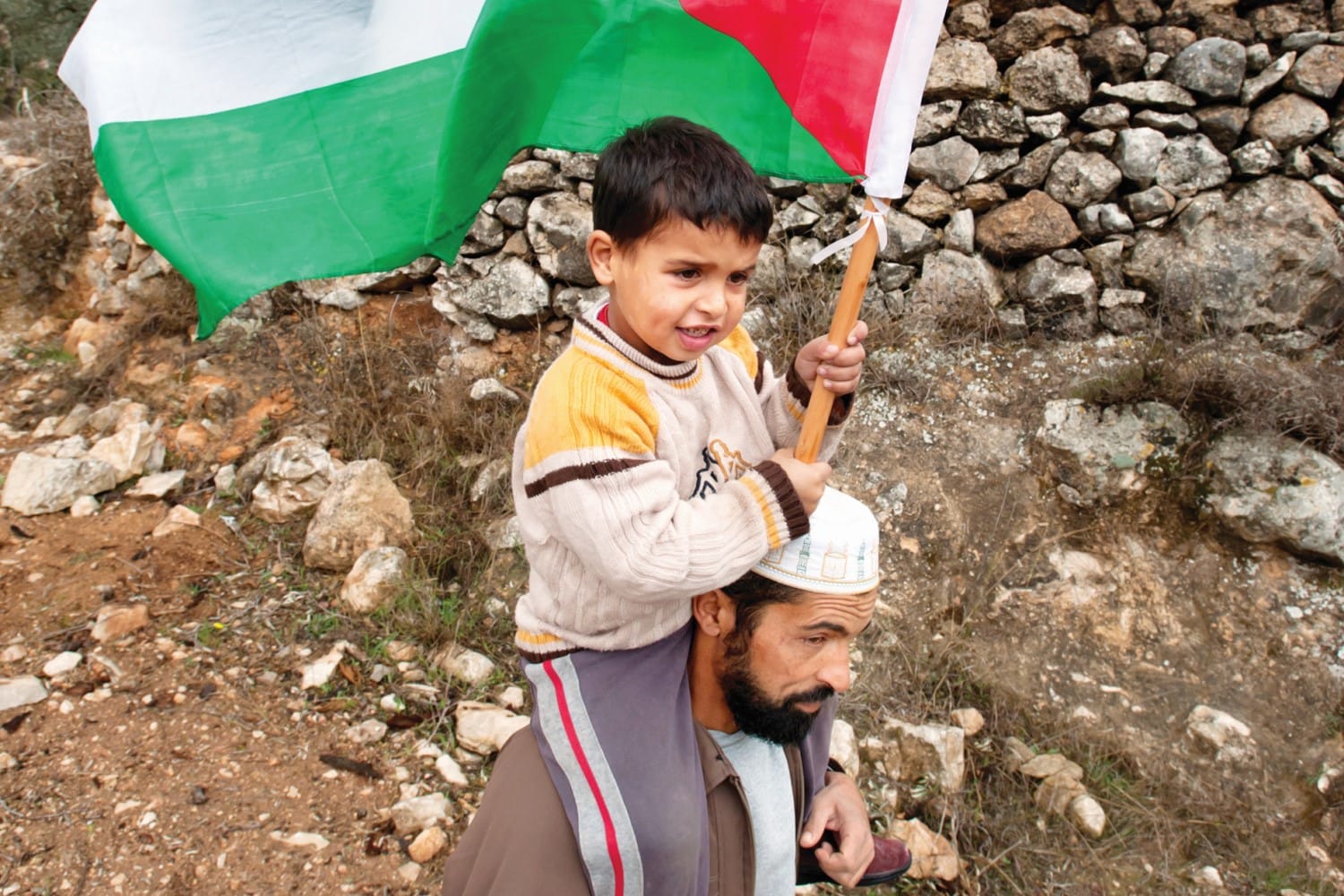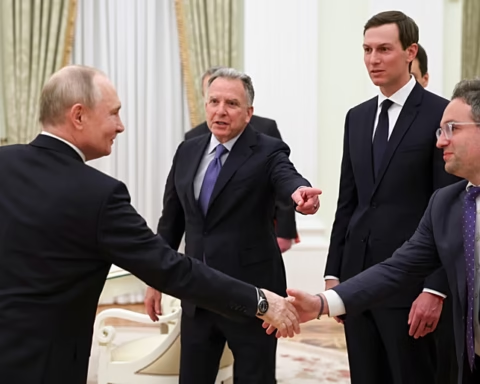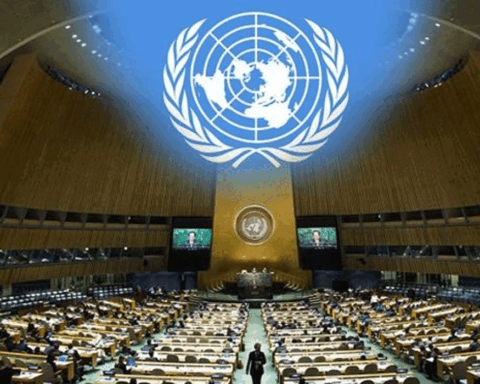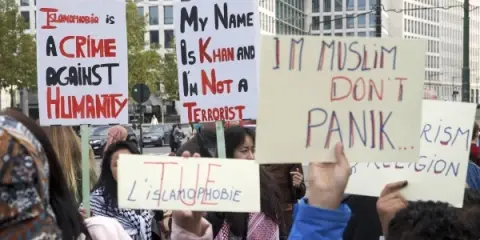The issue of the Jews, which the western world defined as a problem and made efforts to getrid of until a century ago, was thrown into the Islamic world as a bomb with the Zionism –Evangelical alliance. Due to the chaos caused by the First World War in the Islamic world andthe instability that emerged after the Ottoman state was forced to withdraw from the Arabworld, Jewish invaders, who were forcibly encouraged to migrate by the West, began to settlein Palestine under the auspices of Britain. The Palestinian territories, the geography of Jerusalem, were occupied over time as a result of raids on villages and towns by Jewishterrorist organizations, and this de facto situation was registered as “Israel” in 1948.
While the “Jews” problem of the Western world is now the Israel problem of the Islamicworld, Palestine has turned into a total cause. While this occupying power is leaving behindits 75th year, it still acts with the reflex of an organization and tries to destabilize the regionand feed on the violence and chaos it causes, but with its recent massacres, it has beencondemned and isolated in the common conscience of humanity. The Palestinians, on theother hand, have succeeded in turning their cause into the common cause of all humanity bypassing the flag of resistance against this century-old policy of occupation, plunder andusurpation from generation to generation. After the raid on the occupation outpost next toGaza on October 7, 2023, Palestinians took their struggle for freedom to a global dimensionin the face of disproportionate attacks and massacres. Although the Aqsa Flood protests beganas a reaction to Gaza being left to die a silent death for the last two decades, they have alsoled to regional mobilization and change. Faced with the threat of expulsion from their land, the Palestinians did not leave their homeland in the face of the bombardment, thus exposingthe “de-Palestinization of Palestine” project that has been talked about in the occupyingcircles for decades. In fact, this plan is a continuation of the policy of occupying the land andexpelling its inhabitants, which has been practiced since 1948. Today, about 80% of Gaza’spopulation is made up of Palestinians who have been expelled from their land for 75 years, that is, people who have been forced to become immigrants in their own homeland. Thepeople of Gaza, who have been subjected to ethnic cleansing attacks by Israel for its ownsurvival and to achieve its territorial integrity with a majority of Jews, this time did not leavetheir land of immigration at the cost of their lives.
The Abrahamic Covenant (Safqat al-Qarn/Millennium Peace)
In 2011, with the Arab revolutions that started in Tunisia and soon spread throughout theArab world, particularly in Egypt, Libya, Syria, Yemen and Libya, the Palestinian issue took a back seat. The peaceful street demonstrations that started with demands for freedom, justiceand dignity turned into civil wars in some countries and nearly ten times the number of peoplewho were massacred in the Palestinian territories throughout the century lost their lives. Inshort, Baghdad, Damascus, Aleppo, Aleppo and Yemen were no match for any Palestiniancity in terms of humanitarian catastrophe. One of the two axes that emerged with the Arabrevolutions was in favor of maintaining the status quo as it was, and Israel cooperated withthis axis and increased its pressure on Palestine. However, since it perceived the massdemands for change and transformation in the region as a long-term threat, it pursued a policyof rapid normalization with the Arab regimes in the region. Some Gulf monarchies, perceiving the demands emerging with the Arab revolutions as a threat, accelerated theirnormalization policies by aligning with Israel. In a ceremony attended by Saudi Arabia, theUAE, Bahrain, Jordan and Egypt, the Abraham Accord was announced by US PresidentTrump as the peace of the century. In fact, it was an acknowledgment of Israel’s role as a source of regional unrest and a violation of peace in the region. These initiatives, which didnot involve Palestinian actors, envisaged economic, political and cultural activities such as economic support for the region, support for the governments of Jordan, Lebanon and Egypt, the establishment of investment zones in Sinai where Gazans would go and work, and theconstruction of a high-speed railway between Gaza and the West Bank. As part of thesecultural activities, a Jewish group organized joint ethnic events with some Gulf countries, andthe universal peace messages of the three Abrahamic religions were expressed. A Medinanfarmer invited a British Jewish family to his date palm orchard in Medina and planted a symbolic date palm sapling, which was reported in the news as “For the first time in 1400 years, a Jew is in Medina”. Although the main purpose of this agreement was to approveIsrael’s occupation policies and normalize relations with the countries in the region, thePalestinians, who are the victims of the real issue, were ignored. These attempts to determinethe fate of Palestine by excluding the Palestinians seem to have failed with the Aqsa Floodmovement, and the massacres that followed have alarmed the Arab countries involved in thisinitiative.
The Jewish “Israel Question”
Since its establishment, Israel has tried to survive with their financial support by claiming thatit is the state of all the world’s Jews in accordance with its founding philosophy, the Zionistideology. It systematically settled Jews living outside Israel in “Jewish ghettos” in theoccupied Palestinian territories and promised them a smooth and secure life. With the Aqsaflood movement, this Israeli firewall collapsed and all Jews were affected by the conflict andbecame victims of the atmosphere of violence produced by their own state. After the 1973 defeat, Israel’s Jewish citizens were traumatized to the point that the security they were mostconfident about became questionable, and they began to feel the same fear and anxiety thatPalestinians have been experiencing for the past seventy-five years. The questioning of Israel’s aggressive policies, a product of radical Zionism and Christian Evangelicalism, continues at an accelerated pace and Jews outside Israel are concerned about thesedevelopments. In addition, since the beginning of the Gaza massacres, Western leaders knownfor their Christian or evangelical identities have traveled to Tel Aviv to support the warcriminals, which has drawn the reaction of people all over the world.
Israel’s disproportionate use of force in its attacks on Gaza, raining bombs on hospitals, educational institutions and shrines, and massacring innocent civilians, mostly children andwomen, has wounded the conscience of humanity all over the world. The protests againstIsrael, which started in Europe, America and other countries, grew in waves and turned intoanti-Zionism. Especially the demonstrations in European countries, where ordinary criticismof Israel and Zionism is considered under the shadow of anti-Semitism, have shown thatbeing against Israeli policies is not anti-Semitism. Because with the recent massacres in Gaza, the state of Israel has been crushed under the responsibility and honor of being a state, showing that it still has not reached the maturity of being a state in the seventy-fifth year of itsestablishment.
Palestine is Humanity’s Cause for Dignity and Freedom
The issue of Palestine and Jerusalem, which had been overshadowed and forgotten by theArab revolutions, has taken its cause to a global dimension with the recent massacres in Gaza. People of all religions, nationalities and ideologies have taken to the streets to show that theyembrace Palestine as a cause of honor and freedom for humanity, regardless of their regimes. The Palestinian cause has become the new motto of the youth for independence and freedom, and this issue has transcended Arabs and Muslims and has reemerged as the commonconscience of all humanity. In European and American cities, people have taken to the streetsto condemn Israel’s massacres, while at the same time criticizing the pro-Israeli policies of their own governments.
For a long time, the US administration has not made any effort for a two-state solution, on thecontrary, it has defended Israel’s occupationist theses and supported policies that have led tothe gradual erosion of the Palestinian West Bank. Today, more than half of the West Bank territory is controlled by Israel through Jewish institutions in America. Governments in theWestern world have openly supported Israel’s massacres, drawing the ire of their own people. In addition, the mainstream media in the Western world has magnified these reactions with itspro-Israel coverage. Despite all these constraints, this common cry of conscience voiced bythe people gathering in the squares, especially in the Western world, disturbs the Israeliadministration, as well as the condemnation decisions of the Arab League and similarorganizations. It is possible for the Palestinian cause of dignity and freedom, which has gained a global dimension, to be crowned with permanent solutions only if the political actorswithin Palestine unite their own cause.
After 75 years of systematic occupation, Palestinian leaders have reached a new crossroadsafter the recent Gaza massacres. The political divisions that took root after the Oslo processhave pushed the Palestinian Authority de facto towards two different axes. The West Bank is de facto controlled by the Fatah movement under Mahmoud Abbas, while the Gaza Strip is under the control of Hamas. Unless the Fatah and Hamas administrations put aside theproblems between themselves and act jointly against the occupying Israel, which is the main problem that brought them into existence, it is not possible to solve the current problems. Thisunification seems possible without solving the structural problems of the PLO, the commonumbrella organization of Palestinian political actors. Indeed, this mission was underlined in the Extraordinary Joint Summit of the OIC and the Arab League, which came together tocondemn the massacres in Gaza and to determine a road map: “Emphasizing that the PalestineLiberation Organization is the sole legitimate representative of the Palestinian people, calls on all Palestinian factions and forces to unite under the umbrella of the PLO and to fulfill theirresponsibilities within the framework of the PLO-led national partnership.” The PLO wasestablished in 1964 as a result of the decision taken at the Arab League summit in Cairo, withthe aim of gathering the Palestinian groups on the ground under a guided umbrella in linewith the will of the Arab leaders led by Gamal Abdunnasir. Due to the conjuncture of theperiod of its establishment, the PLO had a national socialist and secular character. Under theleadership of Yasser Arafat, the leader of the Fatah movement, the fair representation of otherPalestinian groups was reduced over time. As of today, the PLO is completely identified withthe Fatah movement and other effective groups on the ground are excluded. Hamas, whosepopular support across Palestine is at least as strong as that of Fatah, is not represented underthis umbrella.






